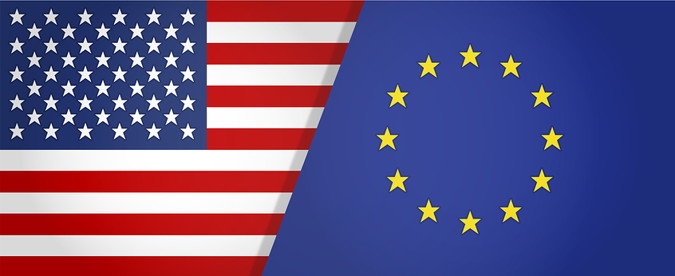Are Betting Companies Getting Too Big?
 Several sports betting companies have been around for a large number of years now. In fact, brands like Ladbrokes and William Hill have been operating since the late 1800s and 1930s, respectively. Today, they’re known as two of the largest betting companies in existence. However, they have been joined in the field by a number of other brands, which have risen through the ranks to the top over the past couple of decades. Those companies like Kindred, GVC, 888 and so on have brought even more competition to the industry.
Several sports betting companies have been around for a large number of years now. In fact, brands like Ladbrokes and William Hill have been operating since the late 1800s and 1930s, respectively. Today, they’re known as two of the largest betting companies in existence. However, they have been joined in the field by a number of other brands, which have risen through the ranks to the top over the past couple of decades. Those companies like Kindred, GVC, 888 and so on have brought even more competition to the industry.
Yet can it be said that due to this increase in size by such huge companies, is there a monopoly on the betting industry? Of course, these bigger brands have also been buying up their smaller competition in a bid to become as large as possible and eclipse their level competition. But will it result in competition being driven down in general where players are concerned? After all, if there are only a few big-name brands operating, will there be as much incentive to participate in such activities.
Furthermore, is it good for the UK’s economy to only have a few big brands catering to the gambling market? Especially if these companies are based abroad in their majority? Will they become so big they start to dictate to nation states in the way that Apple, Google and Facebook do?
How Big Has the British Gambling Industry Become?
 It’s no secret that the UK’s gambling sector has ballooned in recent years. You only need to watch the TV for numerous advertisements to come on the screen, promoting this casino or that betting brand. In fact, thanks to the introduction and growth in popularity of online games and betting possibilities, as well as the liberalisation of gambling laws brought about Tony Blair’s government, the industry has gone beyond blossoming. It has sprouted into a fully-fledged, towering oak tree.
It’s no secret that the UK’s gambling sector has ballooned in recent years. You only need to watch the TV for numerous advertisements to come on the screen, promoting this casino or that betting brand. In fact, thanks to the introduction and growth in popularity of online games and betting possibilities, as well as the liberalisation of gambling laws brought about Tony Blair’s government, the industry has gone beyond blossoming. It has sprouted into a fully-fledged, towering oak tree.
In 2017, a report was released that stated that the UK gambling industry took £14 billion each year from punters. And in the three years passed since that time, it’s likely to have grown even more as well. Even during corona virus in 2020 most of the big companies still managed to make serious profits, even though this was combined with new stake limits on fixed odds betting terminals and tighter restrictions on verification, use of credit cards and other measures.
It was the Gambling Act 2005, which actually came into effect in 2007, that opened the door for television advertising of betting. This relates to casino gaming, poker rooms, sports betting, bingo and so on. That gave betting companies quite the direct access to people within their homes. At the time, the Act allowed for fixed odds betting terminals (FOBTs) to give players the chance to bet up to £100 on them every 20 seconds.
Due to that, the income from the gambling industry multiplied, providing the government with a nice earner in tax. In the year beginning April 2008, right after the act had come into effect, gross gambling yield (GGY) had risen to £8.36 billion. Obviously, the online sector had also contributed a lot to this, and that remains the case today. Naturally, while the government has been reaping the tax rewards, the betting companies have been rolling around in their own revenue from such activity taking place.
As of October 2018 to September 2019, the total GGY of the gambling industry within Great Britain stood at £14.3 billion. Over 98,000 people were employed in the gambling industry sector, there were over 9,500 premises providing such services in the country and remote betting had contributed £2.1 billion towards the GGY’s overall figure.
Major Mergers and Aquisitions Take Over
 Throughout the early years of online betting, there were several companies operating independently of one another. These included companies like the aforementioned Ladbrokes, and others such as Paddy Power, Betfair and Coral. And while companies have been merging together for quite some time, the real drive for major company mergers only took hold in more recent years.
Throughout the early years of online betting, there were several companies operating independently of one another. These included companies like the aforementioned Ladbrokes, and others such as Paddy Power, Betfair and Coral. And while companies have been merging together for quite some time, the real drive for major company mergers only took hold in more recent years.
For example, the Paddy Power and Betfair brands had been existing quite happily alongside one another for multiple years after the latter was formed in 2000. However, when 2016 rolled around, it was announced that they were to merge into one big parent company known as Paddy Power Betfair. Both brands re-branded as Flutter Entertainment, which would then go on to form a deal with the company behind PokerStars, Stars Group.
There was also the high-profile merger of Coral and Ladbrokes, although these two brands had attempted to unite as far back as 1998. However, that original deal fell through when it became the subject of a Monopolies on Mergers Commission investigation. It seems as though that problem didn’t have any impact in 2015 though, as the two came together seamlessly, creating the UK’s largest bookmaker in a single move. During the years since ’98, other brands had been incorporated into the two companies. Gala Bingo had been taken by Coral, while the Betdaq exchange was taken by Ladbrokes.
There was little doubt that proceedings such as these were heavily influenced by the explosion of online betting and gaming. That growth happened to occur at the same time as high street betting shops going through quite the drop in visitors. With the online scene spotting a good moment to seize the wandering punters and bring them to their sites, it was pretty much a decisive move by Paddy Power to merge with Betfair, in a bid to save its name. Betfair had pretty much revolutionised the way that online betting was done, thanks to the provision of its Exchange system, and so Paddy Power attaching its name to this was a sure-fire way of saving itself.
Another big merger occurred when GVC took the decision to put in a takeover bid for Ladbrokes Coral. The deal was accepted in 2018 for £4 billion, just two years after Ladbrokes and Coral had gone through their own merger. That portfolio already contained the likes of Foxy Bingo and Party Casino, and it provided GVC with a great way in to the high street, creating operations that would work in tandem with its online services.
Yet these combinations of major brands have caused super brands to become active in the industry. And it is these super companies that are pretty much wiping out the competition, potentially monopolising the entire market.
And it doesn’t look like these huge mergers are going to stop any time soon. William Hill has taken over the popular Mr Green brand in a bid to increase its own online gaming presence. Of course, the government’s decision to reduce the maximum bets on FOBTs recently has caused problems for many land-based betting shops. William Hill has spoken openly of this before, so potentially, the company is looking at covering its losses with an online Mr Green takeover.
William Hill, one of the most famous British betting names, has now been bought by Caesars Entertainment in order to capitalise on their sports licenses in the US. This takeover cost them around £3 billion and their intention is to just keep the US arm and sell off the retail business in the UK and online division in Europe. In one fell swoop one of the oldest names in betting may disappear form the UK.
What Do These Mergers and Growth Mean for Punters?

Obviously, the explosion of the online betting sector works as a great thing for gamblers. After all, they don’t need to leave home to access betting opportunities. These companies have also been able to provide great deals to players, including heightened bonuses and free bets etc. This helps them to maintain their base of customers and allow it to expand even more.
However, the flipside of this is that not all new bookmakers to the industry can be considered as entirely dependable platforms. Of course, it’s always good for punters to ensure that the company they’re using is licensed by the UK Gambling Commission, and that this allows them to operate on the shores of Great Britain.
But is competition within the gambling industry still at a healthy level? And is it likely to remain at a healthy level in the future? And as it happens, it’s quite a difficult pair of questions to provide a legitimate answer for at the moment. Of course, it’s clear to see that the larger companies such as William Hill and Ladbrokes Coral have quite the tight grip on the market. And while that’s great where those companies are concerned, online-only ventures such as 888 and Kindred (Unibet, 32Red, etc) are also continually growing their influence. And the UK Gambling Commission has pointed to the online sphere as being an exceptionally integral part of the industry for the future.
Naturally, it’s common for industries like this to always have new blood setting up shop. However, it’s quite common for today’s capitalist world for a certain amount of consolidation and contraction to occur. Therefore, it’s quite normal to expect that the biggest betting operators we know of right now will continue to expand even more. That being said, there will also be niche areas of the gambling market that these bigger brands have no interest in or are unable to enter into. That leaves room for the smaller, more unique companies to start out and cater to those players who have a dislike for huge corporate brands.
Expansion Across the Waters

It will also be quite key to keep an eye on how the unfolding US sports betting scene takes hold of British companies, too. When the US Supreme Court elected to remove the federal ban on sports betting throughout the country, it left gaps for gambling companies to insert themselves into different states who have been trying to legalise online and offline sports betting. William Hill and 888, as a couple of examples, have already gained a foothold there, so perhaps this is likely to be the next space to expand their services in.
The American market is a huge one, and now that it has been liberalised by the Supreme Court, there’s little to stop UK companies forming deals over the pond. Any success experienced there also lends itself to the possibility of companies passing profits on from such to the UK consumer. This means that there’s less need for them to take over smaller betting companies, allowing for a bit more homeland competition to burgeon.
GVC has noted that the United States is the largest sports betting opportunity to emerge in the past 20 years. And it’s not far wrong, either. Americans tend to watch 2.2 trillion minutes of sports each and every year, and that is covered by 37 separate networks. It is thought that by 2024, there will be 34 of the country’s 50 states providing legal gambling options to residents. That, the Gambling Compliance company says, could generate around $5.7 billion of revenue annually. As a result of this, it is predicted that the US will become the second-largest regulated gaming market in the world behind China. And that’s even without California, Florida and Texas being included in the market, which account for 27% of the population in the States.
Of course, it remains to be seen if the UK brands can finally crack the United States sports betting market. It was previously shut down in 2006 and then re-opened in 2013 in a small number of states which realised that it could provide a great tax income.
The Final Word
 While it does seem that the UK’s betting companies are expanding and consuming smaller brands at a hectic rate, some of them are certainly doing this to simply stay afloat in a highly competitive area. Can it be said that Paddy Power would still be around in such a big way now if it hadn’t merged with Betfair in 2016? Perhaps not. In merging, they formed a superpower in the industry, and this allowed both companies to stay operational under one umbrella.
While it does seem that the UK’s betting companies are expanding and consuming smaller brands at a hectic rate, some of them are certainly doing this to simply stay afloat in a highly competitive area. Can it be said that Paddy Power would still be around in such a big way now if it hadn’t merged with Betfair in 2016? Perhaps not. In merging, they formed a superpower in the industry, and this allowed both companies to stay operational under one umbrella.
It’s a shame that some of the smaller brands have essentially been gobbled up by their larger competition, as these companies have provided players with bijoux options to access. Brands that provide a much more personalised experience over the corporate brands. And there may be those that are suggesting that betting companies are now becoming too big in the UK. For some, it’s quite possibly true. You only need to look at Bet365, which has risen to become a huge entity. Owner, Denise Coates paid herself a £323 million salary in 2019, making her the country’s top-earning CEO.
The fact remains though, that as long as the industry is progressing and growing in different areas, betting companies will want to get involved in such to keep on top of things. And if this is only possible by them uniting and forming a larger brand, then there’s little to stop them from doing this. Time will tell what the future holds for the UK’s betting industry and the companies involved in it.



